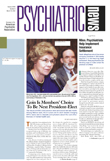“There are two types of psychiatrists: those who have had a patient suicide and those who will.” —Psychiatric Adage
There is a wish on the part of many psychiatrists in training to learn from bad outcomes in psychiatry. Our counterparts in other medical disciplines do this formally in conferences and reviews after morbidities and mortalities. Whether called “M and M,” “CPC” (clinico-pathologic conference), or something else, they are structured, retrospective examinations made among members of a department to teach and to improve quality. Usually they scrutinize the individual physician’s or the team’s diagnosis of the patient’s clinical presentation (usually an inpatient) and subsequent management decisions, and then compare such with pathological findings, findings that represent commonly accepted facts.
Such retrospective and academic scrutiny about bad outcomes occur rarely in U.S. departments of psychiatry. Education that involves actual patients may be in case conferences, which are oriented toward the future care of patients, or in grand rounds, where cases and large-scale findings about suicide or other morbidities are occasionally discussed, but it is the rare department that holds a “psychological autopsy.” These reviews do occur in small, private attending-level meetings (like quality assurance committees), but not in department-wide settings. While residents do learn important points about the risk of and protective factors against suicide that operate among populations (sex, age, and so on), and we also learn important mental status findings that dictate our interventions, we learn little about the individual factors in real cases. In my estimation, this is frustrating to trainees and robs them of an important opportunity to learn psychiatry and perhaps to empathize with a colleague as well.
There are legal and personal reasons why training departments refuse to discuss these cases openly among their residents. One reason in the legal realm is that hospital lawyers sometimes warn against discussion (even among department members only) of situations about which the institution faces a great deal of liability, especially when the case is recent. Another reason is personal: since most care is given by one person alone (rather than by a team), there is a high risk that one of the patient’s caregivers will feel blamed or interrogated, which would be personally painful, to say the least.
To me, these arguments only build upon differences between psychiatry and the rest of medicine. First, from a legal standpoint, why should there be any differentiation between talking about an adverse outcome in psychiatry versus some other specialty of medicine? Are psychiatrists of patients who committed suicide any more accountable or liable than the GI fellow who tore up the patient’s ampulla of Vater? Second, the notion that the resident alone would be attacked highlights a misconception that residents themselves are responsible for the care of their patients: By definition, residents in all specialties do not and should not work alone: they are required to have, and deserve, supervision, and in an M and M situation the team, not simply the resident, is the responsible party.
But there might be an unsaid reason as to why these conferences do not occur: we lack biological or psychological equivalents of the pathology specimens used in medicine and surgery. After all, in a CPC, the clinical course is related to actual pathological findings that are meaningful and predictive and often serve as the arbiters of the “what happened.” But psychiatry lacks agreed-upon causal understandings of the states we treat. And the implication is that, in the absence of knowledge of any biological or mental-state finding specifically predictive of any outcome, we avoid these M and M’s because they will indeed lead to destructive blaming of the personal style or to the resident’s inexperience.
A generation ago, Leston Havens, M.D., published “Anatomy of a Suicide” in the New England Journal of Medicine, which continues to be hailed as a magnificent study. And today there are residents who yearn for conferences such as I am suggesting; it would be helpful if they could become more commonly a part of our education.
In practical terms, I would propose that residencies hold these conferences
• on a regular, ongoing basis (to preserve anonymity),
• with all the residents present (to ensure as many learn from the case as possible),
• with the resident’s option to refuse discussion of the case, and
• with the supervisory team present (to take some of the responsibility).
If we can make these conferences safe both legally and personally, they might help to produce psychiatrists who will one day discover those “arbiters” of psychopathological validity that we need. ▪

